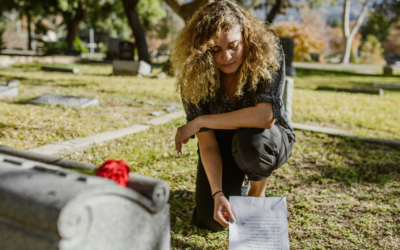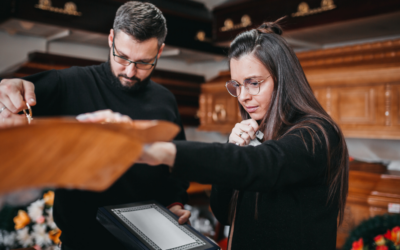The funeral service industry is far more diverse than most people realize. It extends beyond the traditional roles of funeral directors and mortuary assistants, offering a variety of unique and impactful career paths. From working directly with grieving families to supporting forensic investigations, these roles highlight both the science and empathy behind funeral service careers.
If you’re an aspiring funeral service professional, understanding these lesser-known roles can open up exciting opportunities for your career path. Below, we’ll explore some unique jobs in the field, what they entail, and how you can get started.
Exploring Unique Jobs in Funeral Service
Job #1: Thanatopractor
If you’ve heard of embalming, you’ve already touched on what a thanatopractor does—but the role goes beyond simple preservation.
What They Do:
Thanatopractors specialize in restoring the appearance of the deceased, especially in cases involving accidents, illness, or other conditions where extensive work is needed to provide closure to grieving families. Using advanced embalming techniques and restorative art skills, they ensure the deceased looks natural and at peace, preparing them for an open-casket service.
Educational Requirements:
This role requires specific training in mortuary science and embalming. Aspiring thanatopractors typically complete an Associate or Bachelor’s degree in Funeral Service, with specialized courses in restorative arts. Licensure is required, with criteria varying based on the state you wish to work in.
Demand for Thanatopractors:
With families increasingly desiring personalized and meaningful farewells for their loved ones, the demand for skilled thanatopractors is growing. This career is a blend of technical expertise and creative artistry, appealing to those who are detail-oriented and compassionate.
Job #2: Bereavement Coordinator
Providing emotional support to grieving families is one of the most important aspects of funeral service, and bereavement coordinators play a pivotal role in this process.
What They Do:
Bereavement coordinators work to support families through the grieving process. They coordinate grief counseling services, assist with memorial planning, and connect families with local support groups. Their role often begins during a family’s interaction with the funeral home and continues for several months afterward.
Skills Required:
Strong listening and interpersonal skills are a must. Many bereavement coordinators have backgrounds in social work, psychology, or counseling. Certifications in grief counseling, though not mandatory, are highly valued.
Why It Matters:
For families experiencing loss, having a bereavement coordinator ensures they don’t have to go through the most challenging moments of their lives alone. This role requires emotional resilience and a deep commitment to helping others heal.
Job #3: Forensic Mortuary Technician (FMT)
When tragedy strikes in a way that requires law enforcement or forensic investigation, this is where forensic mortuary technicians step in.
Responsibilities Include:
- Assisting with autopsies and forensic examinations.
- Preparing remains for analysis by forensic pathologists.
- Ensuring proper documentation and preservation of evidence.
Educational Path:
To become a forensic mortuary technician, you’ll need a foundational education in anatomy, biology, or forensic science. Many professionals in this field begin their careers with degrees in mortuary science and obtain additional certifications in forensics.
Significance of the Role:
Forensic mortuary technicians play a vital role in providing closure to families and assisting in criminal investigations. Their work can guide justice while handling sensitive situations with professionalism and care.
Job #4: Funeral Celebrant
Not all funeral services are traditional, and funeral celebrants help families design ceremonies as unique as their loved ones.
What They Do:
Funeral celebrants work closely with families to create personalized funeral or memorial services. They design ceremonies that encompass storytelling, meaningful rituals, and symbolic acts that celebrate the deceased’s life.
Training and Certification:
Although there are no formal requirements, many celebrants choose to complete certifications through organizations like the Funeral Celebrants Association. Training focuses on crafting ceremonies, public speaking, and cultural traditions.
What Sets This Role Apart:
Unlike religious officiants, celebrants cater to people of all faiths, spiritual beliefs, or none at all. They ensure each service reflects the individual’s unique life and values. This role is ideal for creative, empathetic individuals who enjoy connecting with families in meaningful ways.
Educational Pathways for Aspiring Funeral Service Professionals
Pursuing any of these unique careers begins with the right education and training. Funeral service education institutions like Pierce Mortuary Colleges offer a range of programs catered to aspiring professionals.
Mortuary Science Programs
Programs like the Associate of Applied Science in Funeral Service provide foundational knowledge and skills, covering embalming, restorative art, grief counseling, and business operations.
Admissions Process
Each college within the Pierce Mortuary network provides a clear and supportive admissions process. Check out our Guide to Applying to Pierce Mortuary Colleges which covers everything from eligibility requirements to financial aid options, helping you confidently take the next step in your journey.
Here are some highlights:
- Educational Requirements: A high school diploma or equivalent is the minimum requirement for admission. Additional licensing requirements depend on your state.
- Easy Online Application: Applications can be submitted online, and necessary documents include transcripts, entrance assessment scores, and a photo ID.
For detailed information, contact the Admissions Office at:
- Mid-America College of Funeral Service: [email protected] or call 812-288-8878.
- Dallas Institute of Funeral Service: [email protected] or call 214-388-5466.
- Gupton-Jones College of Funeral Service: [email protected] or call 770-593-2257.
Prepare for a Rewarding Career in Funeral Service
The funeral service industry offers a wide array of unique and deeply meaningful career paths, each requiring a balance of technical expertise, compassion, and creativity. Whether you’re drawn to restorative art, grief counseling, forensic sciences, or crafting personalized ceremonies, there’s a place for you in this field.
If you’re inspired to take the next step in your career, start by exploring educational opportunities at one of the Pierce Mortuary Colleges. Each campus provides expert faculty, hands-on learning experiences, and a supportive community focused on your success.
Contact us today to begin your application or schedule a campus tour. Visit Mid-America College, Dallas Institute, or Gupton-Jones College to learn more.
Your career in funeral service awaits—make it meaningful!




